Quotas 'key' to Guernsey fishing solution, says Defra
- Published
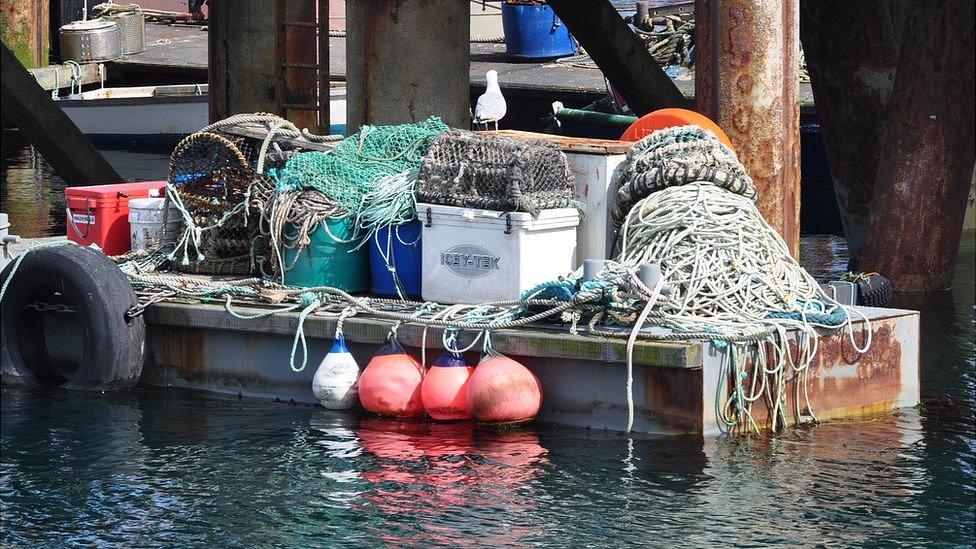
There are more than 140 registered fishing vessels in the Bailiwick of Guernsey
Defra has repeated its commitment to quotas in discussions with Guernsey over reinstating a fishing agreement.
The Fisheries Management Agreement was suspended on 1 August, which meant Bailiwick of Guernsey fishermen were banned from working in EU waters.
It comes as Guernsey's Commerce and Employment Minister, Kevin Stewart, accused Defra of delaying tactics.
A Defra spokesman said: "We continue to hold discussions with Guernsey to try and come to a mutual agreement."
He continued: "[We] remain clear that quotas play a crucial role in ensuring the sustainability of our stocks and protecting the long-term future of our fisheries.
"UK fishing licences held by Guernsey-registered vessels remain in force while negotiations continue."
The ban on Bailiwick fishermen working in EU waters was temporarily lifted in August, but its return has not been ruled out.
Deputy Stewart has tweeted about his frustrations in communicating with Defra.
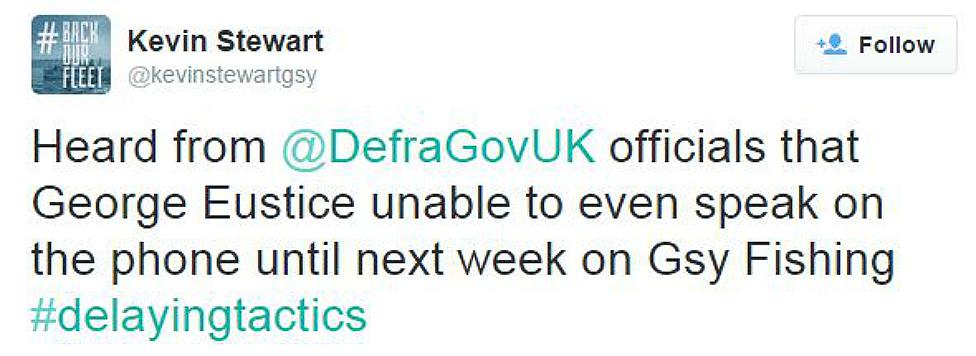
Guernsey's catches are included in the English non-sector quota - the area of sea including the England Channel - and currently make up about 75% of the ray and skate quota as the catches are included by the EU.
Mr Stewart has questioned why the catches by Guernsey fishermen, especially those made in the island's non-EU waters, are included in the UK quota.
Defra has previously said the lack of controls on Guernsey catches puts unfair pressure on UK fishermen.
It has also argued the island agreed to comply with relevant EU fisheries measures in signing the Fisheries Management Agreement.
- Published18 August 2015
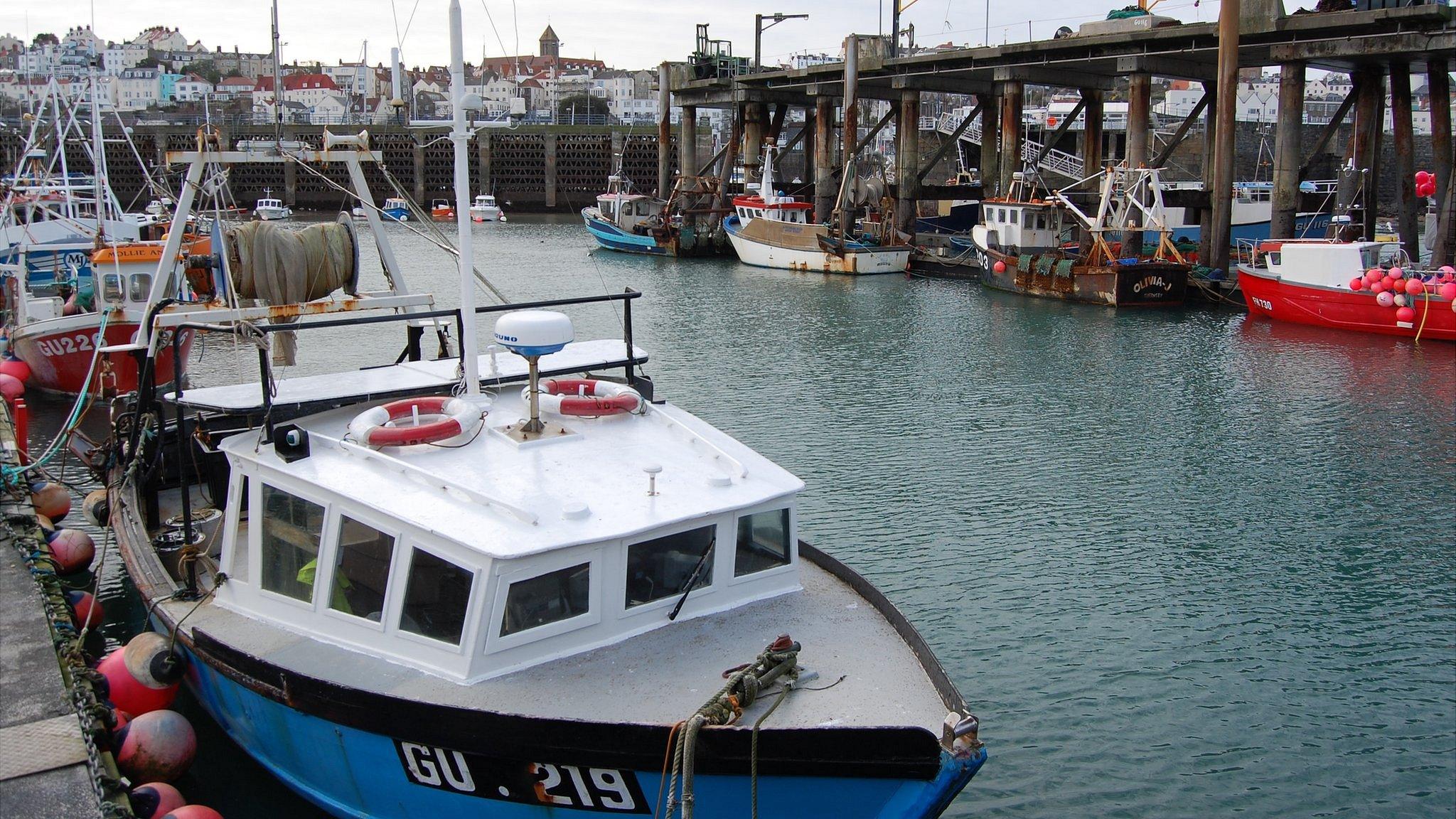
- Published16 August 2015
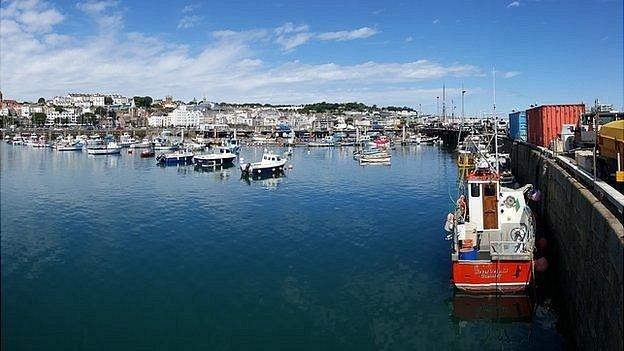
- Published7 August 2015
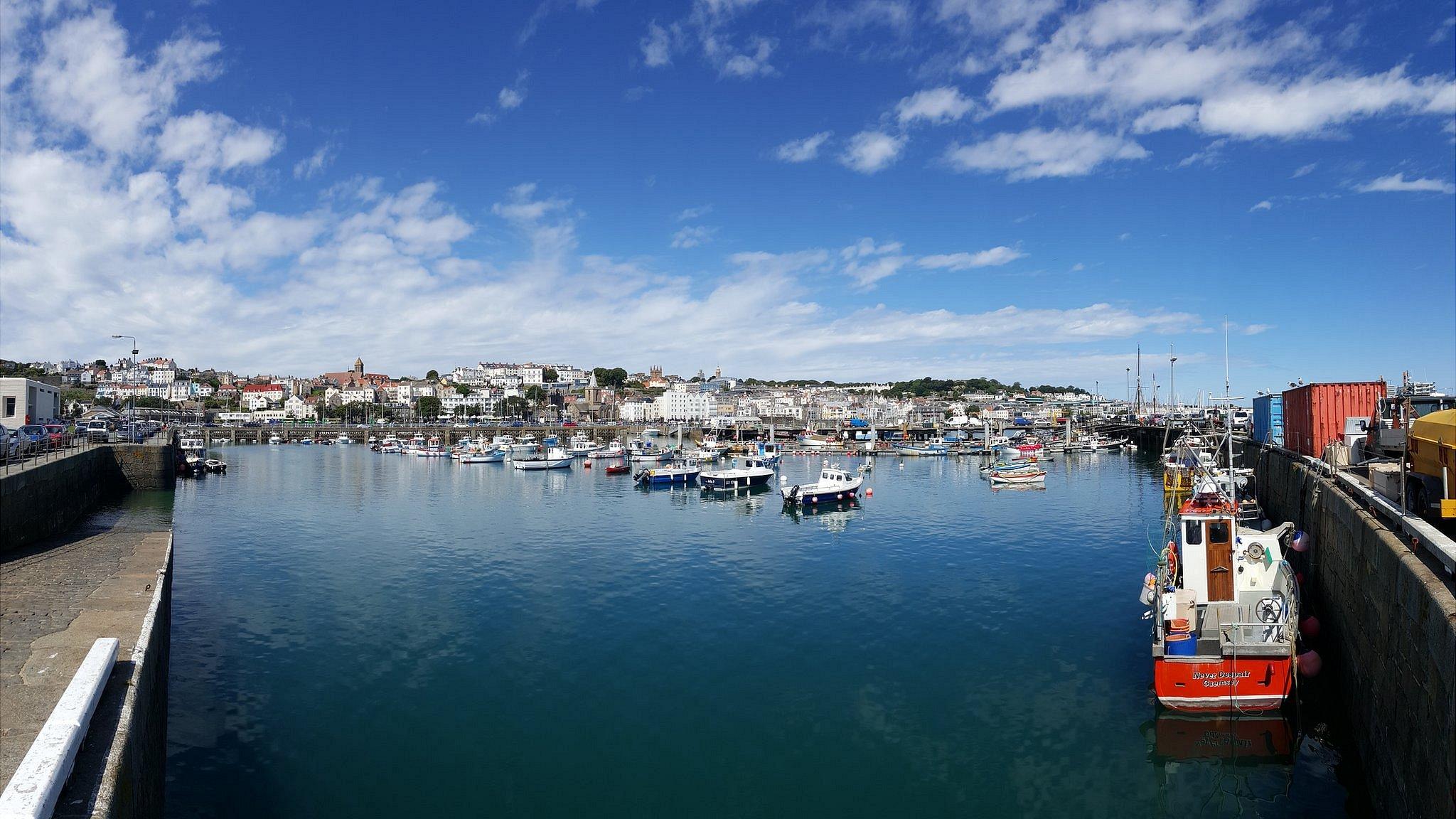
- Published5 August 2015
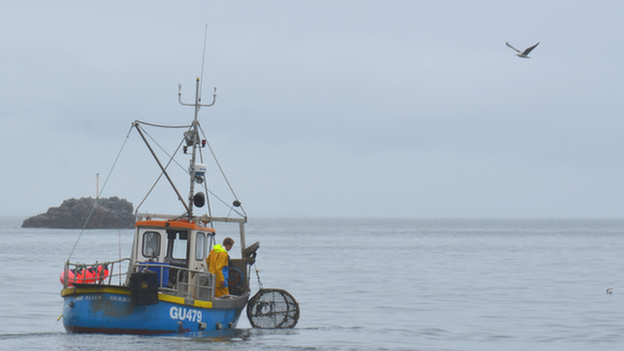
- Published3 August 2015
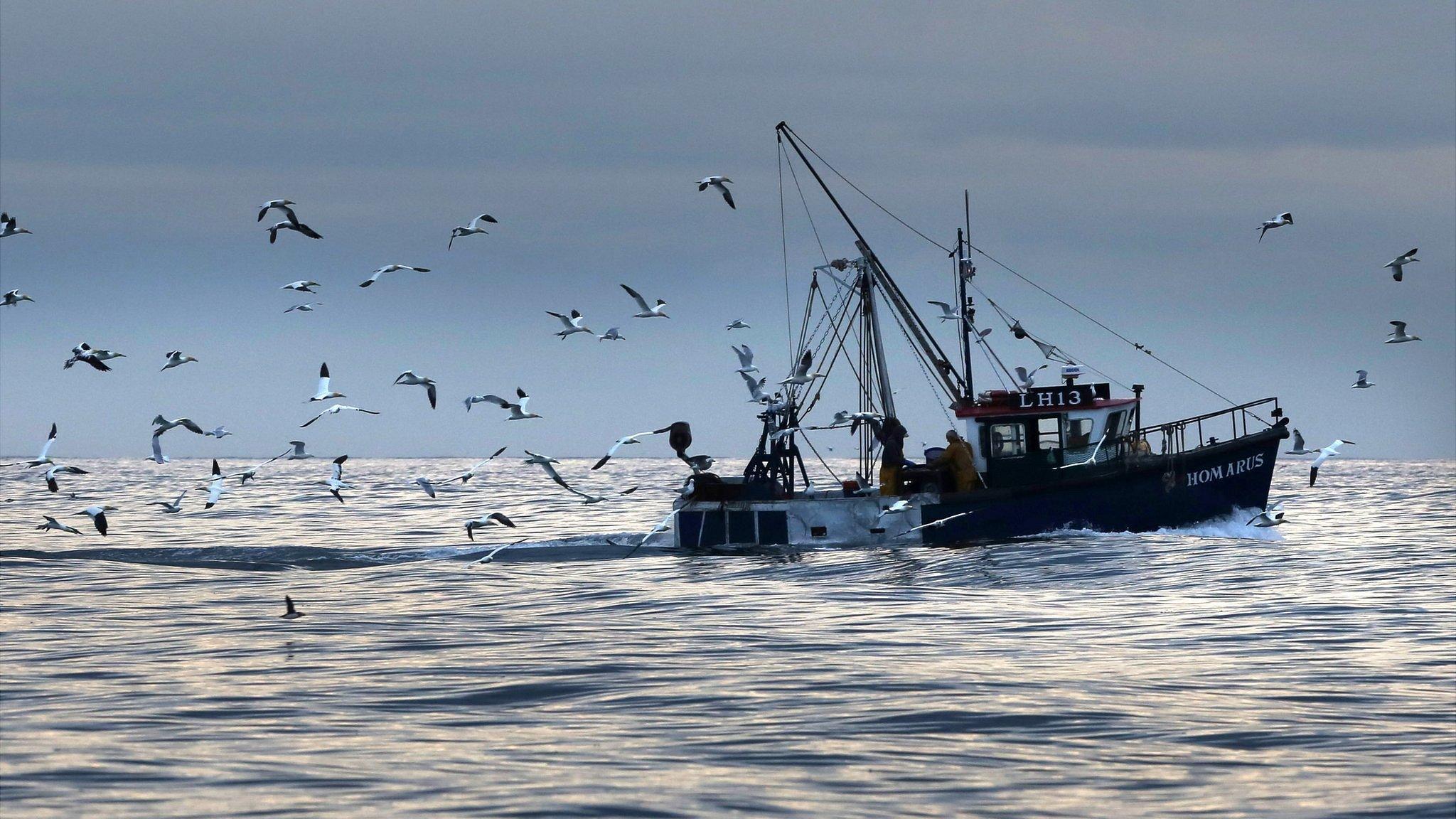
- Published31 July 2015
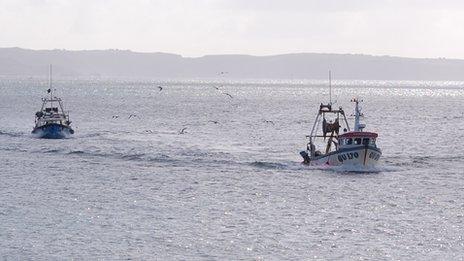
- Published30 July 2015
